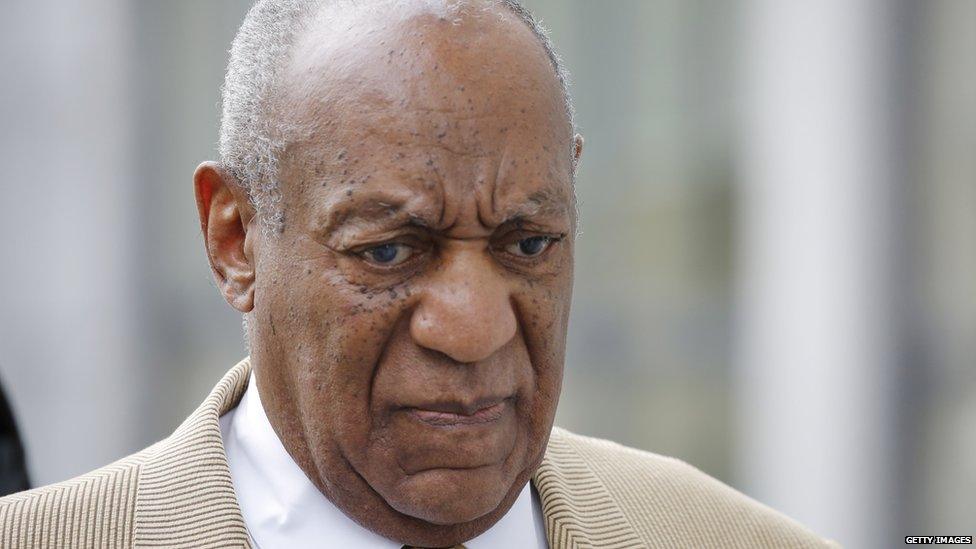Bill Cosby: Accusers speak of shock and anger after conviction overturned
- Published
Watch: The moment Bill Cosby leaves prison
US comedian Bill Cosby's release from prison after his sexual assault conviction was overturned has led to an outpouring of anger and shock.
His 2018 conviction for drugging and molesting ex-basketball player Andrea Constand was overturned on Wednesday.
Judges said there had been a "process violation" by the prosecution, but admitted their ruling was unusual.
Many have expressed concern that the decision could deter women from coming forward in the future.
The decision "is not only disappointing but of concern in that it may discourage those who seek justice for sexual assault in the criminal justice system from reporting or participating in the prosecution of the assailant," Ms Constand and her attorneys said.
Upon his release, Mr Cosby tweeted: "I have never changed my stance nor my story. I have always maintained my innocence."
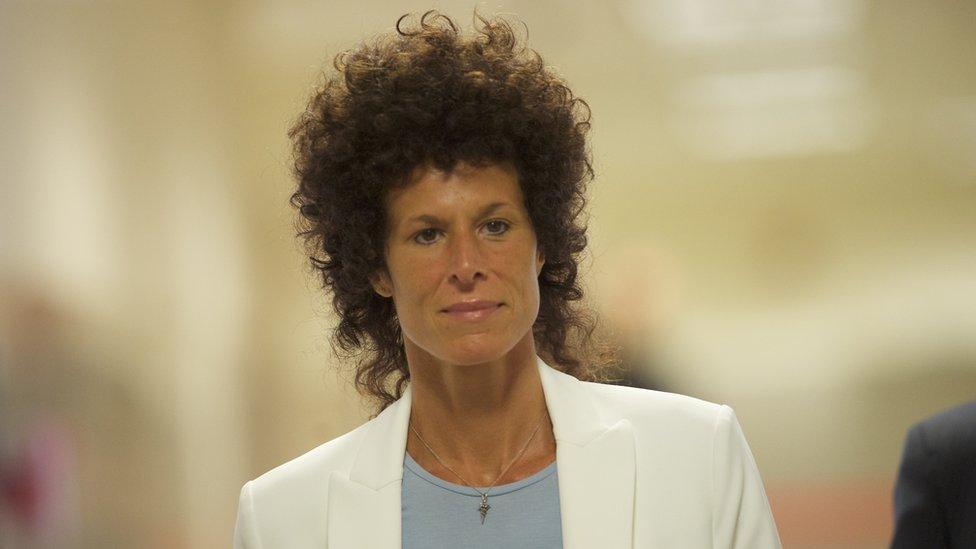
Constand was the only alleged sex assault victim who could bring charges against Cosby
Mr Cosby is best known for starring in the 1980s TV series The Cosby Show and was once known as "America's Dad".
Dozens of women have publicly accused Mr Cosby of sexual assault, but he was only tried criminally for the incident against Ms Constand. His conviction in 2018 was widely seen as a landmark moment in the #MeToo movement.
In a verdict issued on Wednesday, Pennsylvania's highest court found there was a "process violation" because Mr Cosby's lawyers had made an agreement with a previous state prosecutor that he would not be charged in the case.
The former actor appeared frail as he slowly walked to waiting media outside his home, shortly after being released from prison.
Among Mr Cosby's accusers to speak out against the ruling was Patricia Leary Steuer.
She told CNN: "There were more than 63 of us who came forward in the end. I'm wondering what the purpose was of the 43 years of this ordeal and the trauma that I had and the trauma that my family endured as a result."
Janice Baker-Kinney, who accused Mr Cosby of giving her pills and raping her in the 1980s, told WPVI-TV: "I am stunned, I am shocked and my stomach is in a knot ... One legal ease can overturn this when so many people came forward."
Meanwhile, celebrities have been taking to social media to condemn the decision.
Actor and activist Amber Tamblyn wrote on Twitter: "I am furious to hear this news. I personally know women who this man drugged and raped while unconscious. Shame on the court and this decision."
Columnist E Jean Carroll, who is one of several women to have accused former US President Donald Trump of sexual assault, said: "THIS is why women do not come forward."
Actor Debra Messing tweeted that the decision was "horrifying".
Allow X content?
This article contains content provided by X. We ask for your permission before anything is loaded, as they may be using cookies and other technologies. You may want to read X’s cookie policy, external and privacy policy, external before accepting. To view this content choose ‘accept and continue’.

"This is sickening. My heart is with my sister survivors. We have work to do," tweeted Rosanna Arquette, who was one of the first women to come forward to accuse film producer Harvey Weinstein of assault.
Anita Hill, chair of The Hollywood Commission, which works to stop abuse in the entertainment industry, said in a statement: "The Cosby ruling demonstrates how failures in our criminal justice systems make accountability for sexual assault impossible."
"Sexual assault, harassment and extortion happens in workplaces every day. Systems that ensure accountability for powerful abusers, protect workers and prevent agreements that shield abusers are urgently needed in entertainment and other industries."
Some have expressed anger at the prosecutor and Pennsylvania Supreme Court for overturning the conviction, including author Keith Boykin.
Allow X content?
This article contains content provided by X. We ask for your permission before anything is loaded, as they may be using cookies and other technologies. You may want to read X’s cookie policy, external and privacy policy, external before accepting. To view this content choose ‘accept and continue’.

However, some welcomed the decision.
Actor Phylicia Rashad, who played his wife on the Cosby Show, wrote on Twitter: "A terrible wrong is being righted - a miscarriage of justice is corrected!" in response to the news.
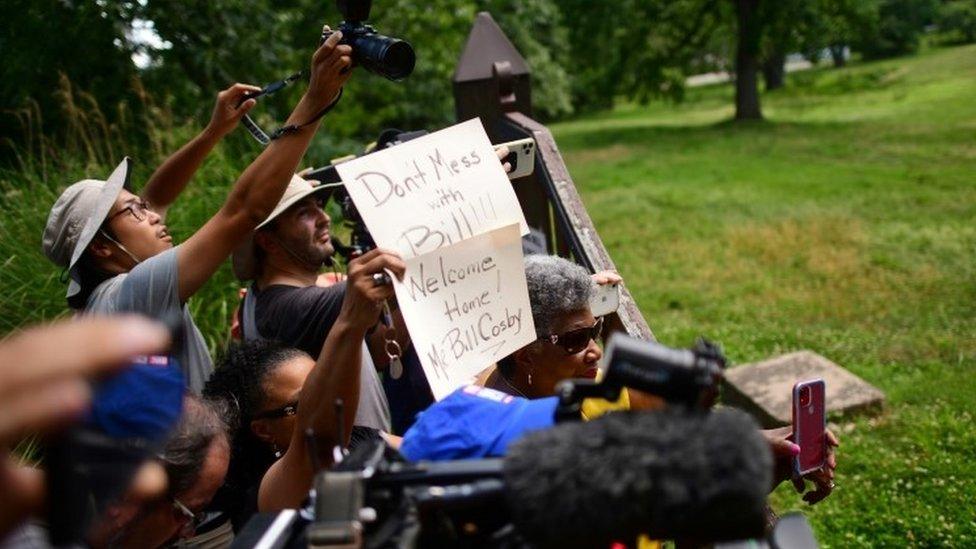
Fans celebrate after the decision to overturn Bill Cosby's conviction was announced
What was Bill Cosby accused of?
Mr Cosby was found guilty on three counts of felony indecent assault against Ms Constand.
Decades his junior, she met him in 2002 when working at Temple University in Philadelphia and described the comedian as a mentor figure. She later testified at trial how she became "frozen" after Cosby drugged and molested her at his home in 2004.
Ms Constand first came forward to police about the assault in 2005, but former state prosecutor Bruce Castor did not press criminal charges. She then sued the comedian for sexual battery and defamation, reaching a settlement with a confidentially agreement in 2006.
In 2014 and 2015, dozens of women came forward with similar allegations of drugging and assault by Mr Cosby. Local authorities knew that statute-of-limitation rules meant they could not pursue the majority of these accusations - but they reopened the case involving Ms Constand and eventually charged him just days before the 12-year limit on her allegations was set to expire.
A judge declared a mistrial in his first trial in 2017 after the jury failed to reach a verdict.
The testimony of other accusers was then allowed during a second trial, which helped prosecutors paint a pattern of predatory behaviour by Mr Cosby.
"There is only one remedy that can completely restore Cosby to the status quo ante. He must be discharged, and any future prosecution on these particular charges must be barred", the finding released on Wednesday reads, external.
Peter Goldberger, a lawyer with an expertise in criminal appeals, told the Associated Press that prosecutors could ask the Pennsylvania Supreme Court to reconsider but it would be very unlikely to succeed.
- Published30 June 2021
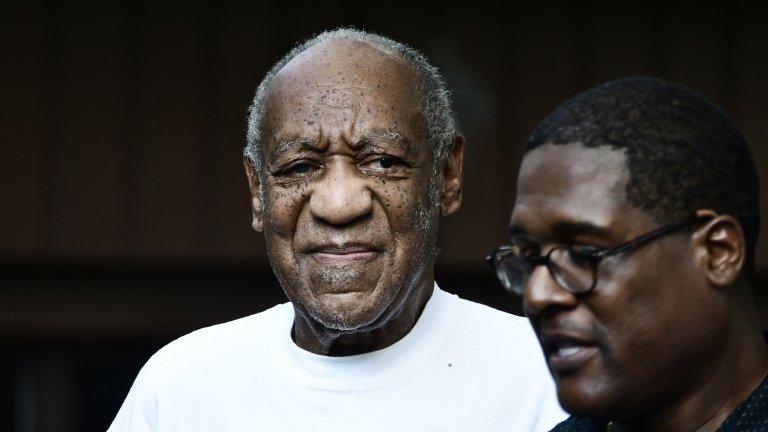
- Published16 October 2017
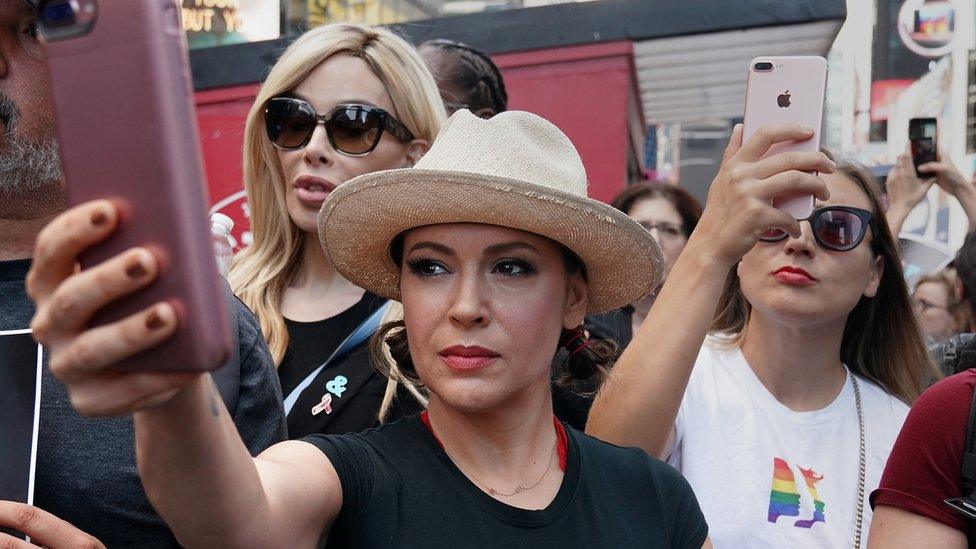
- Published9 July 2020
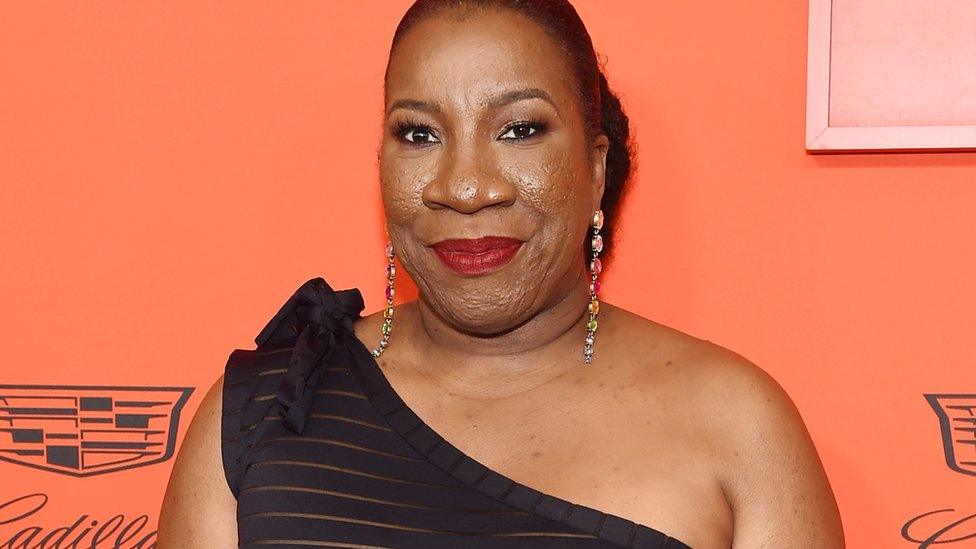
- Published9 September 2016
